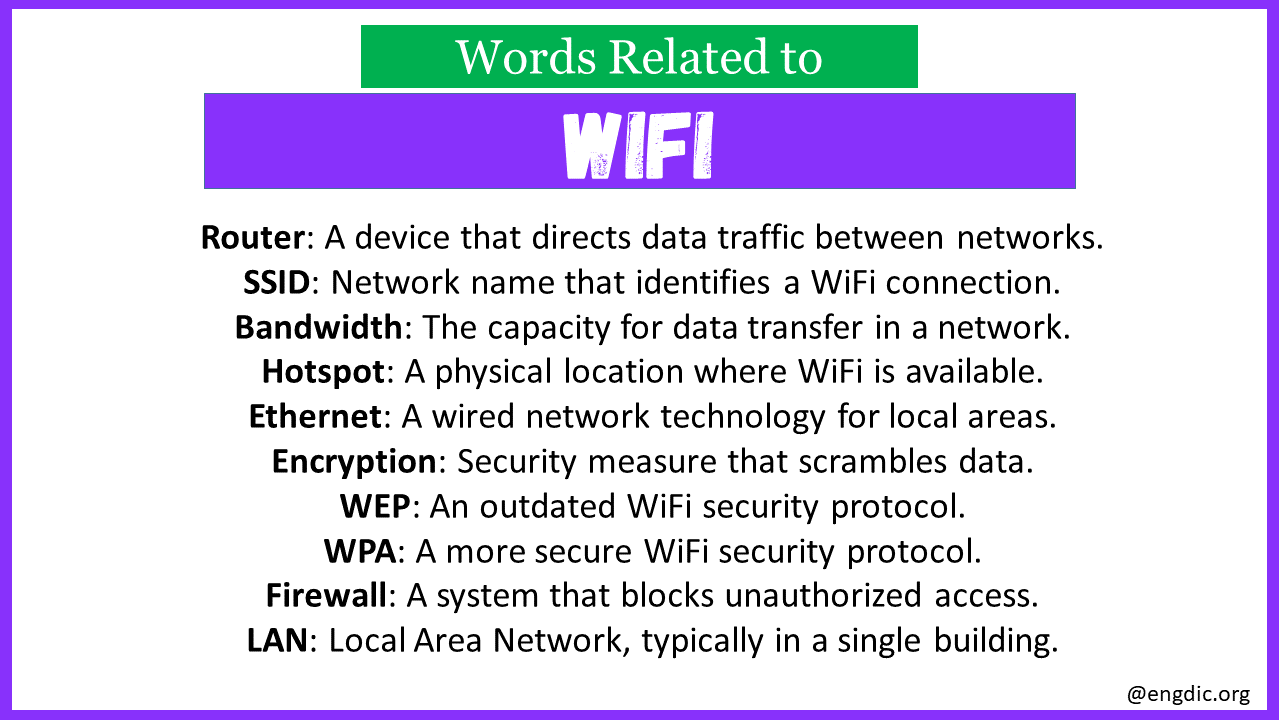When it comes to modern communication and connectivity, WiFi plays an integral role. A common technology in households, offices, and public spaces, WiFi allows devices to connect to the internet wirelessly. Understanding WiFi-related terms can greatly enhance your grasp of how this ubiquitous technology functions.
Words Related to Wifi
Here are the top 30 terms related to WiFi with meanings:
- Router: A device that directs data traffic between networks.
- SSID: Network name that identifies a WiFi connection.
- Bandwidth: The capacity for data transfer in a network.
- Hotspot: A physical location where WiFi is available.
- Ethernet: A wired network technology for local areas.
- Encryption: Security measure that scrambles data.
- WEP: An outdated WiFi security protocol.
- WPA: A more secure WiFi security protocol.
- Firewall: A system that blocks unauthorized access.
- LAN: Local Area Network, typically in a single building.
- WAN: Wide Area Network, linking multiple locations.
- ISP: Internet Service Provider, offers internet access.
- VPN: Virtual Private Network, for secure browsing.
- TCP/IP: A set of rules for internet communication.
- Modem: Device for digital signal conversion.
- Access Point: Hardware that allows WiFi connectivity.
- Signal Strength: Measure of WiFi signal quality.
- Frequency: Radio waves on which WiFi operates.
- Gateway: Interface between different networks.
- Ping: Test of network response time.
- Download: To receive data from a remote source.
- Upload: To send data to a remote server.
- Broadband: High-speed internet connection.
- QoS: Quality of Service, prioritizing network traffic.
- MAC Address: Unique identifier for network devices.
- NAT: Network Address Translation, modifies IP address.
- Firmware: Software that controls hardware function.
- Streaming: Real-time data transmission, often video.
- Proxy Server: Intermediary for web requests.
- Data Cap: Limit on amount of data transfer.
Explore More Words:







